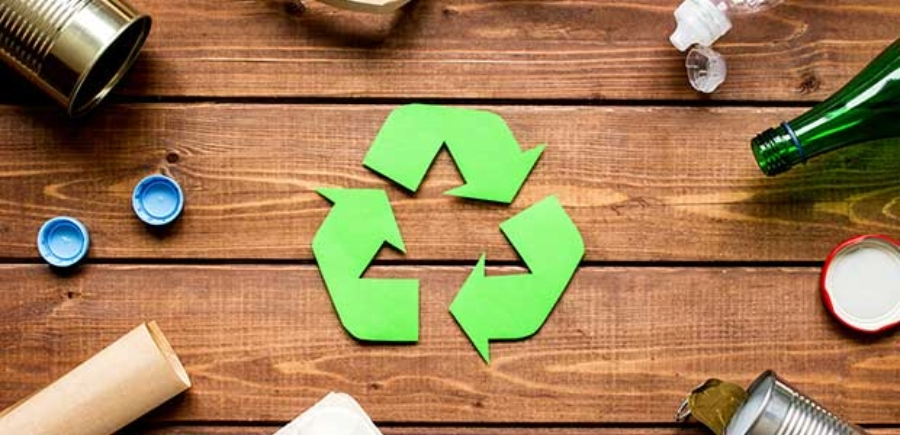The Power of Recycling: Polyethylene Plastics
The power of recycling polyethylene plastics is not just an eco-conscious choice; it’s a powerful testament to our capacity for sustainable change. The ubiquitous presence of polyethylene plastics in our daily lives, from packaging materials to pipes and containers, demands our attention as we grapple with mounting environmental challenges. Plastics have become an integral part of our modern lives, but their widespread use has also given rise to significant environmental challenges.
Understanding Polyethylene Plastics
Polyethylene (PE) is a thermoplastic polymer made from the monomer ethylene. It is one of the most widely used plastics in the world due to its versatility, durability, and low cost of production. There are two primary types of polyethylene: high-density polyethylene (HDPE) and low-density polyethylene (LDPE). HDPE is commonly used for items like milk jugs and detergent bottles, while LDPE is found in plastic bags and films.
The Environmental Challenge
The convenience of polyethylene plastics comes at a cost to the environment. When not properly managed, these plastics can persist in the environment for hundreds of years, contributing to pollution, harming wildlife, and filling up landfills. Additionally, the production of virgin polyethylene plastics is energy-intensive and relies on fossil fuels, further exacerbating climate change.
The Role of Recycling
Recycling polyethylene plastics is an effective way to mitigate these environmental challenges. When we recycle polyethylene, we divert plastic waste from landfills and reduce the need for the production of new plastics. Here are some of the key benefits of recycling polyethylene plastics:
- Resource Conservation: Recycling polyethylene reduces the demand for new raw materials, conserving valuable resources like petroleum. This not only helps protect ecosystems but also reduces the energy required for extraction and processing.
- Energy Savings: The energy required to produce recycled polyethylene is significantly lower compared to manufacturing new plastic from scratch. This translates into fewer greenhouse gas emissions and a smaller carbon footprint.
- Waste Reduction: Diverting polyethylene plastics from landfills and incineration helps reduce the strain on waste management systems and extends the lifespan of existing landfill sites.
- Wildlife Protection: Proper disposal and recycling of polyethylene plastics help prevent plastic pollution in oceans and natural habitats, safeguarding marine life and wildlife.
- Economic Opportunities: Recycling polyethylene plastics supports a growing industry of green jobs, from collection and sorting to processing and manufacturing of recycled plastic products.
Challenges in Polyethylene Recycling
While recycling polyethylene plastics is beneficial, it does come with its own set of challenges:
- Contamination: Contaminants like food residues or non-recyclable materials can reduce the quality and value of recycled polyethylene. Proper sorting and cleaning are essential.
- Limited Markets: The demand for recycled polyethylene can fluctuate, and markets may not always be readily available for all types of polyethylene plastics.
- Consumer Education: Many people are still unaware of the importance of recycling and may not know how to properly recycle polyethylene plastics.
- Infrastructure and Investment: Expanding recycling infrastructure and investing in advanced recycling technologies are necessary to improve efficiency and increase recycling rates.
Environmental Benefits
- Conservation of Resources: Recycling polyethylene plastics reduces the demand for new raw materials, such as crude oil, which is used to produce plastic. This conserves natural resources and reduces the environmental impact of resource extraction.
- Energy Savings: The recycling process typically consumes less energy compared to the production of virgin plastic. This energy savings leads to a reduction in greenhouse gas emissions and lowers the carbon footprint associated with plastic production.
- Waste Reduction: Polyethylene plastics are a significant contributor to landfills and litter. Recycling helps divert these materials from landfills and reduces the burden on waste disposal systems.
- Reduced Pollution: Recycling polyethylene plastics can help reduce pollution associated with the extraction and processing of raw materials, as well as the incineration or landfilling of plastics.
Economic Benefits
- Job Creation: The recycling industry generates employment opportunities in the collection, sorting, processing, and distribution of recycled materials.
- Resource Efficiency: Recycling polyethylene plastics can lead to cost savings for manufacturers and businesses, as they can use recycled materials to produce new products. This promotes resource efficiency and helps reduce production costs.
- Market Development: Recycling creates a market for recycled materials, encouraging innovation and investment in recycling technologies and infrastructure.
Recycling polyethylene plastics is not just a responsible choice but also an essential step towards a more sustainable future. By reducing waste, conserving resources, and minimizing pollution, recycling polyethylene plastics helps address both environmental and economic challenges associated with plastic use. As consumers, we can play our part by learning how to properly recycle polyethylene plastics, supporting initiatives that promote recycling, and advocating for more sustainable practices in our communities. Together, we can make a significant difference in the fight against plastic pollution and climate change.
Source

